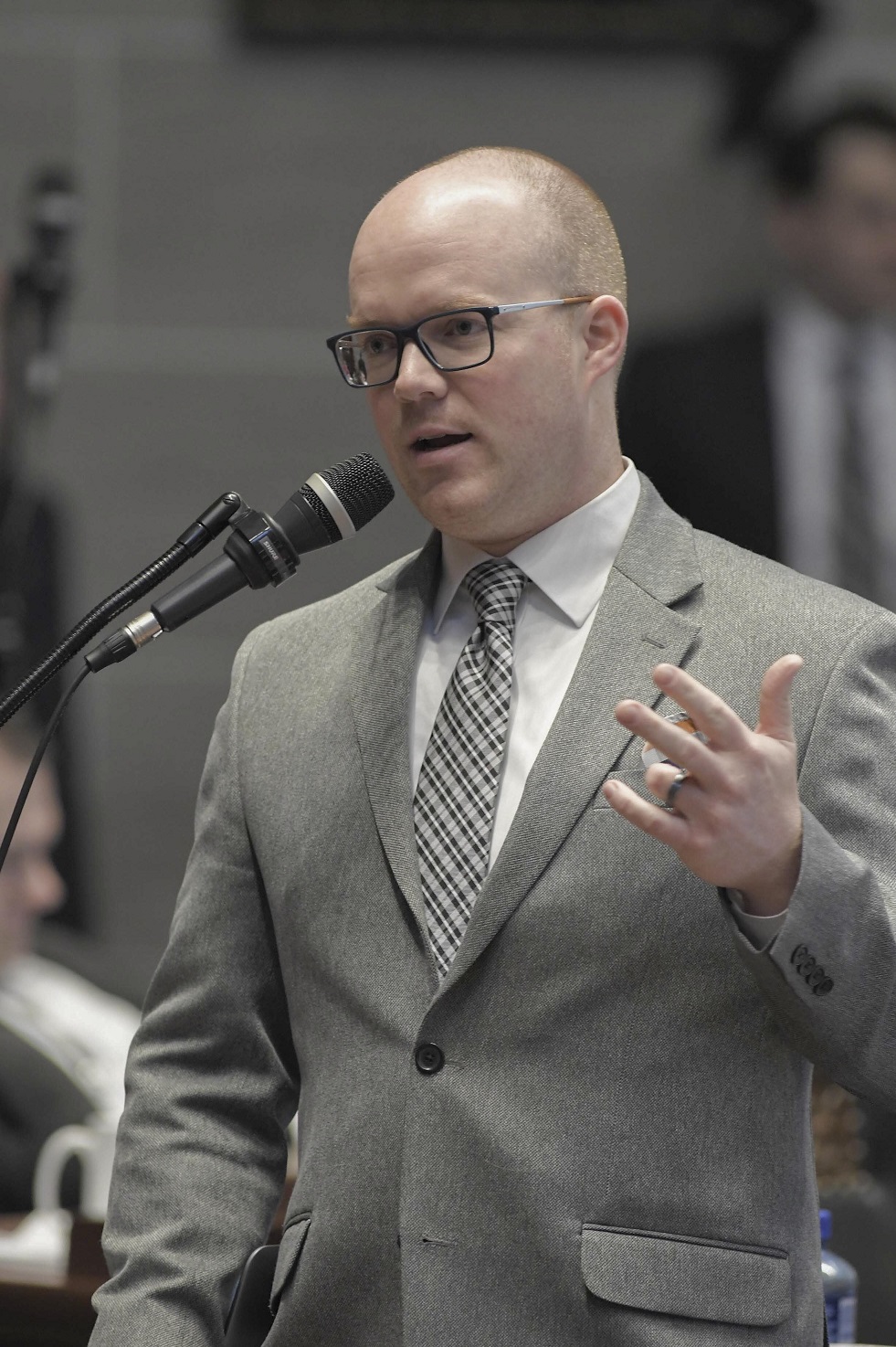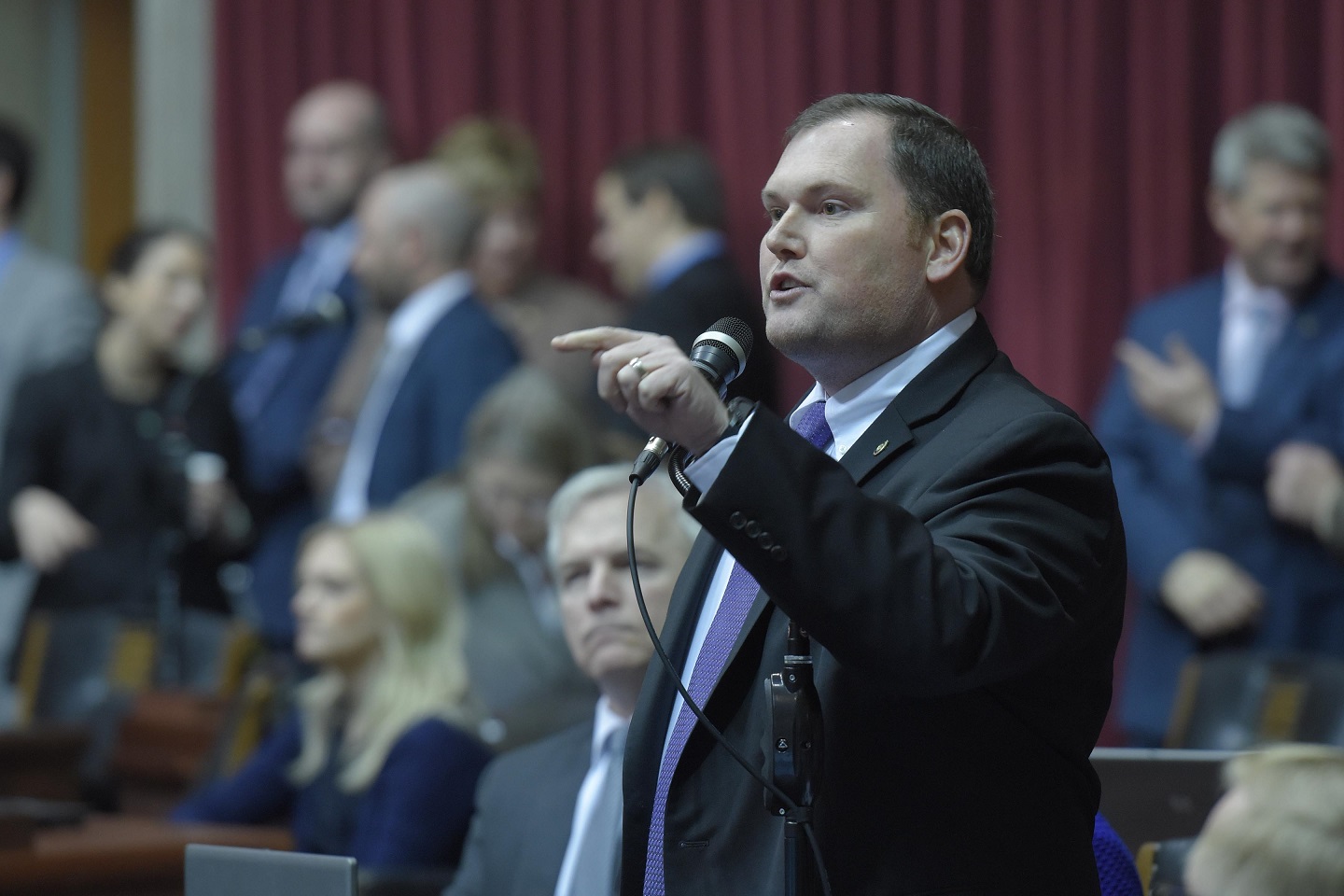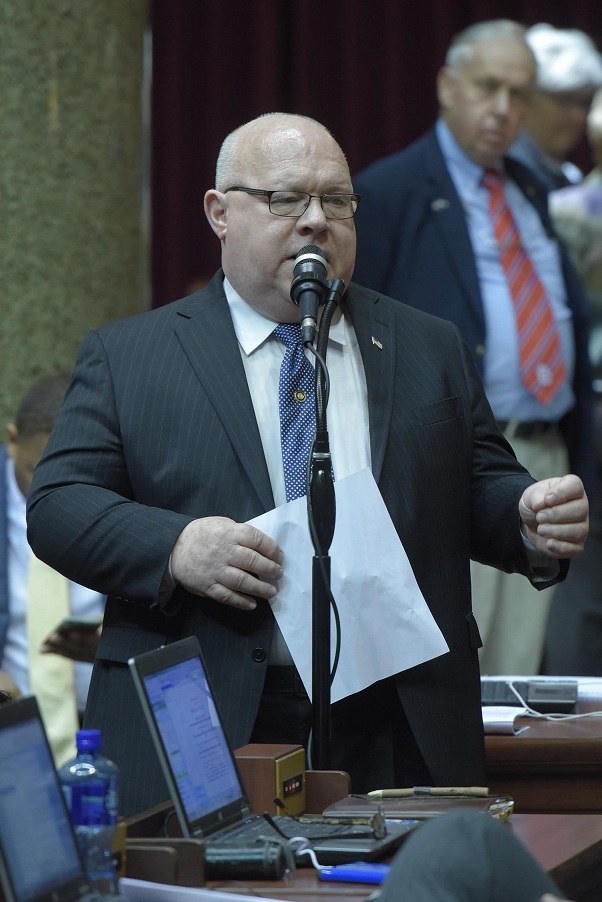The Missouri House has approved a bill aimed at increasing security at the state’s only nuclear power plant.

House Bill 1797, called the “Nuclear Power Plant Security Guard Act,” would create the offense of “trespass on a nuclear power plant, and make it punishable by up to four years in prison. The bill also allows armed guards at the plant to use or threaten physical or deadly force if they believe it necessary to protect themselves or others protects them from civil liability for conduct covered in the bill.
Representative Travis Fitzwater (R-Holts Summit), whose district includes Ameren’s Callaway Energy Center, proposed the Act.
Fitzwater called the plant, “a very unique spot in our state, a very unique asset to our economy. It just gives [guards] statutory authority to protect that facility.”
The bill had bipartisan support, including from Representative Bob Burns (D-St. Louis) who recalled touring the plant when he was first elected to the House 6 years ago.
He said the state can’t do enough to protect the plant, “Particularly with what we’ve been hearing for the past couple of years about our electric grid. Things like Callaway, those are targets for terrorists, and if something happened to Callaway it wouldn’t just hurt Callaway, it would hurt our whole state and our region. I mean it could make Chernobyl look like a firecracker.”
The bill passed 134-8. One of those 8 “no” votes was cast by Kirkwood Democrat Deb Lavender, who said guards at Callaway already have the authority the Act would allow, including authority to use deadly force when there is a “reasonable belief” that it is necessary.
The Act now goes to the Senate for its consideration.



